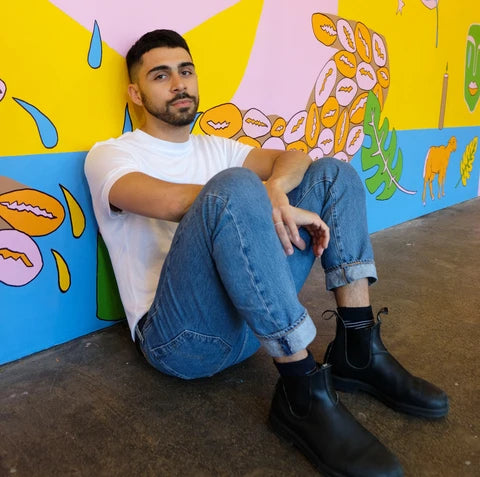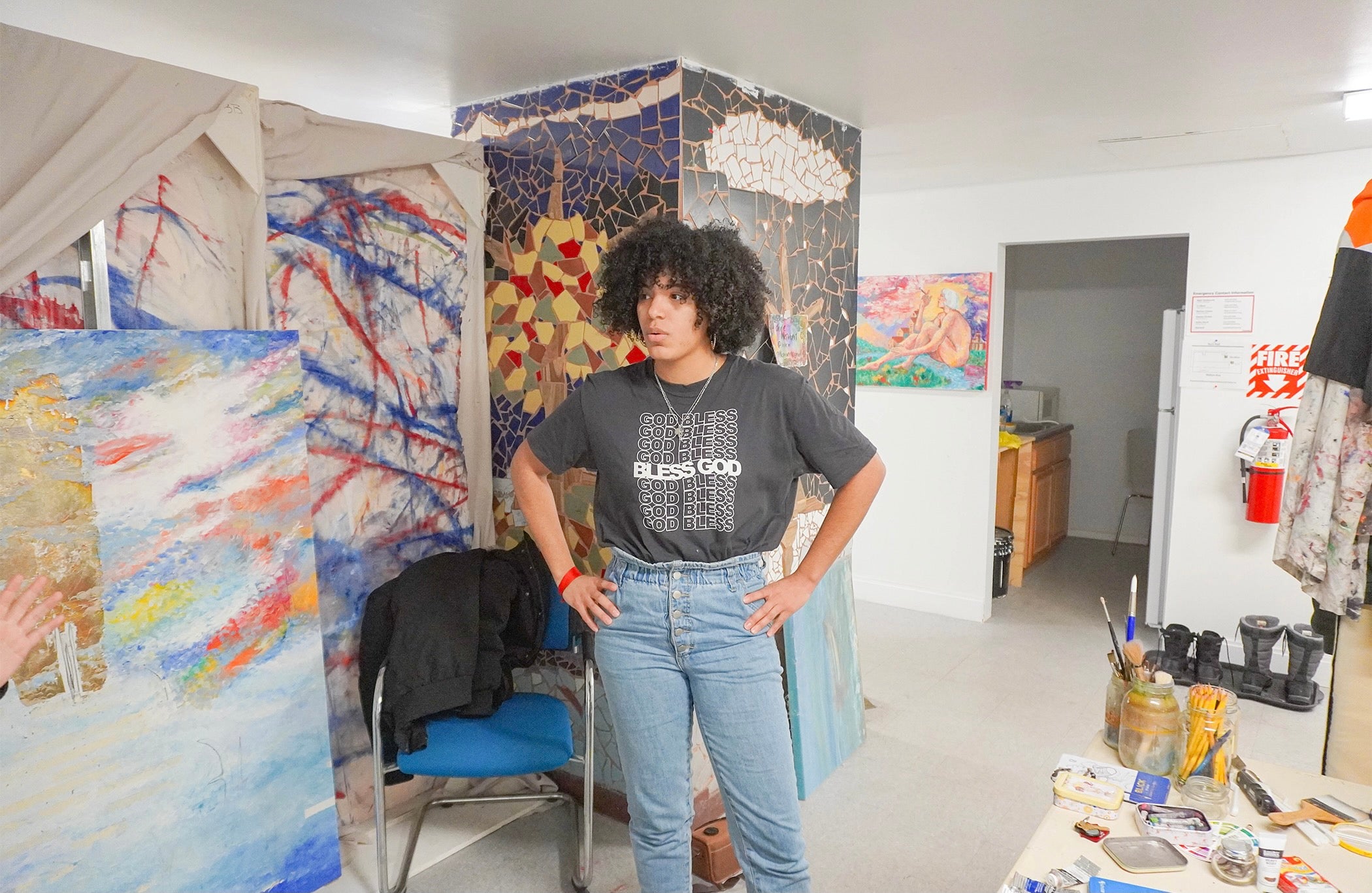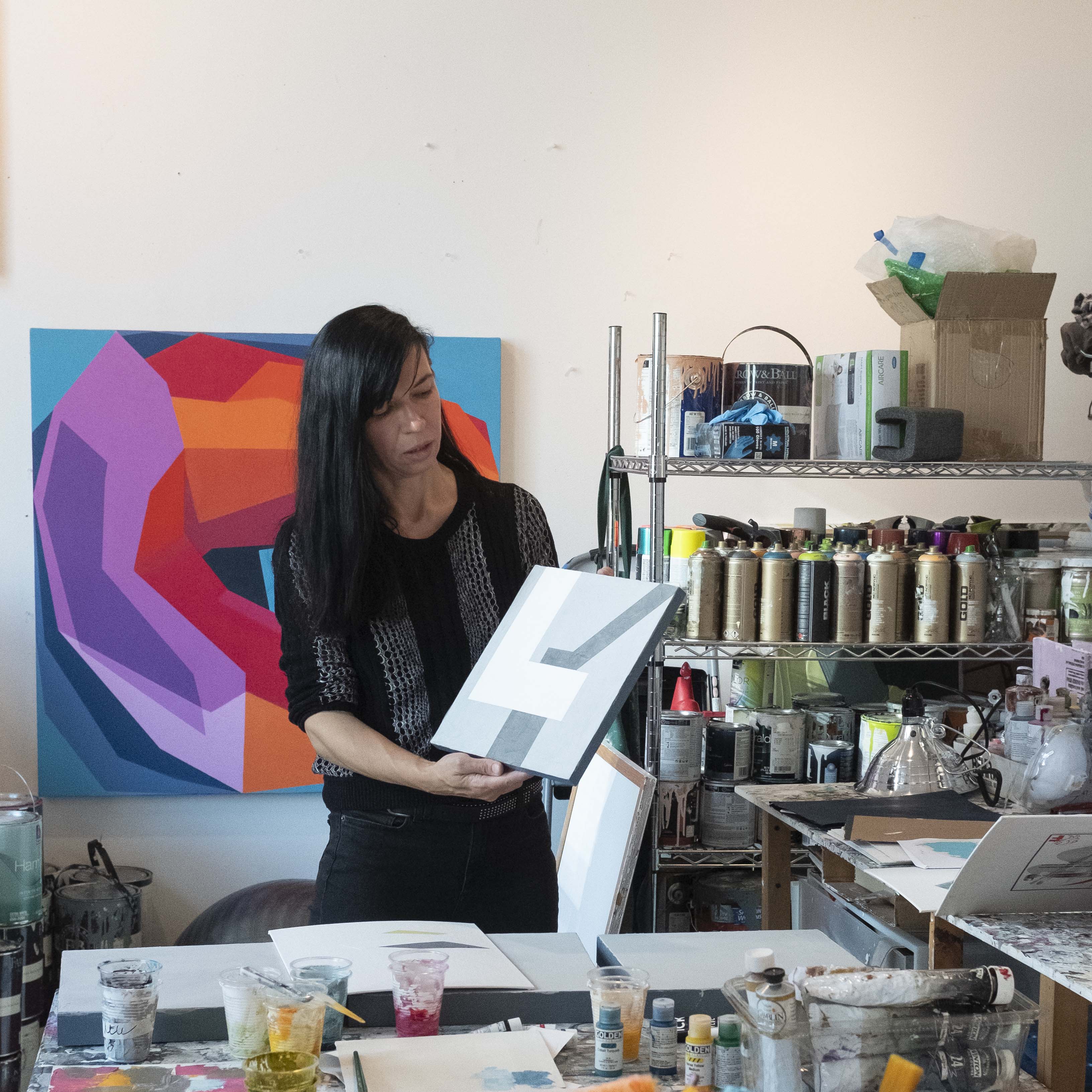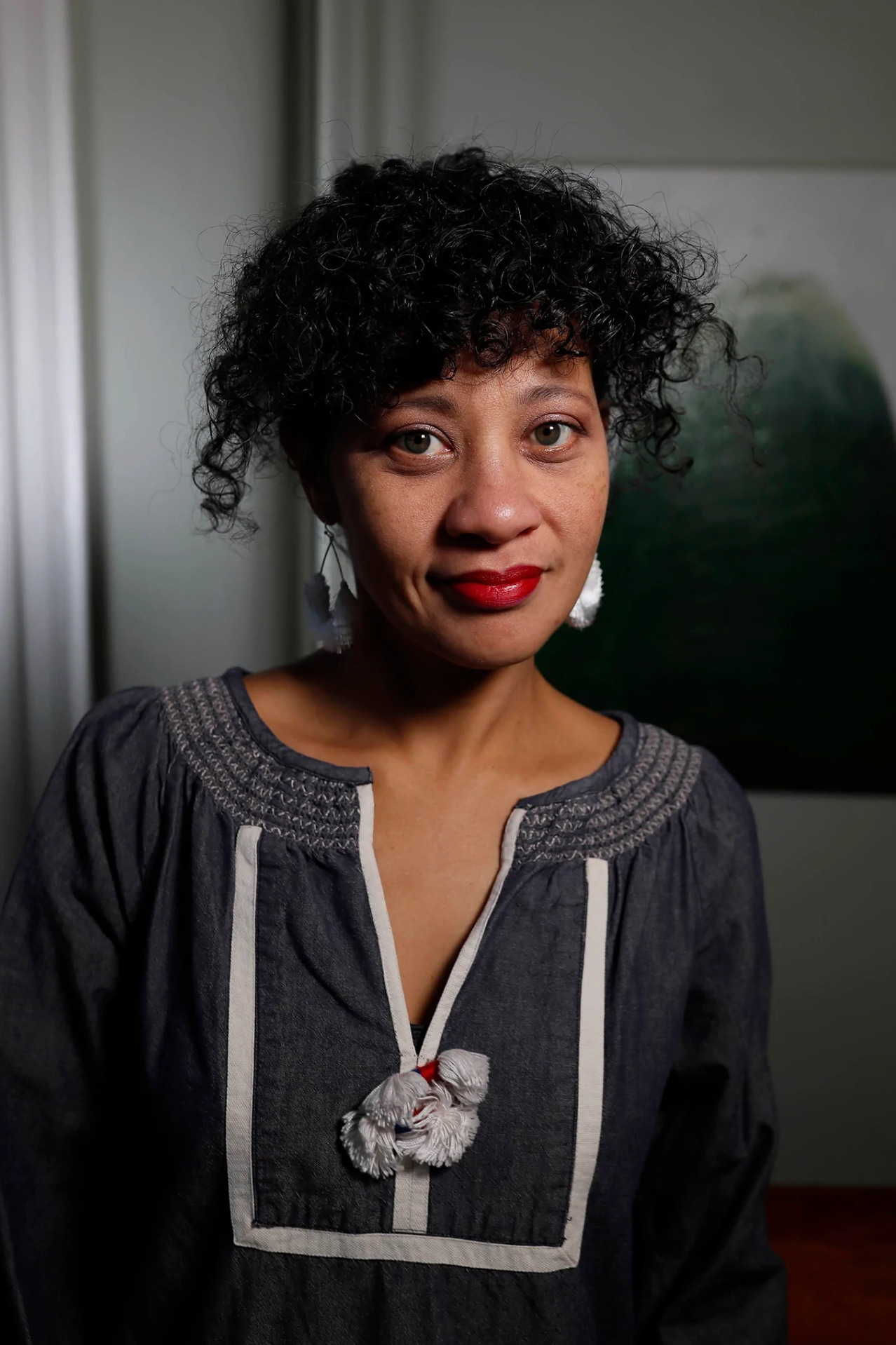No Products in the Cart
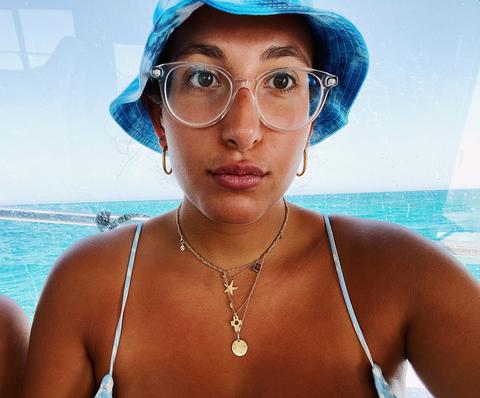
Laura Bishai (She/her/hers) is the writer behind Body Language, a writing project that brings conversations about sex into the open.
Tell me about more about the background to Body Language! How did your interests develop from studying literature to art, then to this project?
Growing up in Egypt where you don’t really talk about women, when I hit puberty and going through awkward phases, I couldn’t really talk or go to anyone. Especially being on the curvier side, I grew up being very self aware of my body, which was often over-sexualized. I grew up in a Christian family, so that religious aspect along with Egyptian culture, excluded sex from everyday conversations. Most of my sex ed came from Hannah Montana [laughs], and other American movies and TV shows.
Last summer in Egypt there was a huge movement talking openly about sexual assault. There was a big case that came to light, where a young man who went to a prestigious school assaulted women. So it became a bigger part of social media conversations. Actually, there’s a girl responsible for making this into a social media movement, @assaultpolice. (https://www.instagram.com/assaultpolice/)

With all this, Body Language started as a writing project. I announced an anonymous Google form on Instagram so people could share their thoughts, desires, fears… And a lot of people did. But one of my friends said, “A lot of people don’t have the words. So if you want people to share, you gotta give them some vocabulary” - that, if you want to have conversations, you have to give people the tools.
Any unexpected challenges?
For some time there was a huge issue whether to be anonymous, whether to associate myself personally to this project or not. Being in Egypt, if I get too “provocative”, it could get easily shut down. So I don’t have my full name on my website. Just initials. It could be seen as something against Egyptian family values.
Just last week, there was a sporting club - it’s kind of like a casual country club, that remains from colonial times - where a bunch of old women had a birthday party. They had penis and vagina shaped cupcakes, that they posted on social media and went viral. The pastry chef ended up getting arrested!
Even on an individual level, I still get comments that my take is too provocative, or get questioned how I know all “that stuff”. Which makes me question myself too, based on internalized shame. I try to detach myself from that.

Platonic intimacy by definition takes different meanings and forms depending on the person. What does platonic intimacy look like to you, personally?
I spent a very long time placing romance at a higher level than friendship. I had to unlearn that - mainly in being straight and having straight guy friends. It invited constant speculation from friends, like “have you hooked up” bringing back the idea that guys and girls can’t be “just friends”, which is absurd.
In the end, establishing your own boundaries is all that matters. Sometimes it takes time because you’re human - but think about whether you’re projecting other needs or issues. When you don’t know, it’s easier to misread the sense of connection with others because there’s a void you’re trying to fill and you don’t know how to fill it.
The same principle applies when, if I’m exploring my own sexualities at that period of my life, that changes the way I express myself relationships. I was recently talking about my friends, how exploring your sexuality has a very broad spectrum from only masturbating with yourself only, or experimenting with different genders and sexualities, what kinds of acts you want to perform and when. It’s about exploring the limits of your body and mind that creates a sense of security which informs your relationships.
And how may platonic intimacy as you described above help us recontextualize our relationship to works of art and to the artist?
I've been interested in writing from a very young age. Writing was my solace and a way of processing whatever I was thinking about. Visual arts, I got into in high school, which I then pursued in art school and now as an art worker. So I’ve always had these two main components.
Art is intimate to begin with. The artist always puts a lot of themselves into their works, which creates a relationship between the artist and viewers. Even without invoking intimacy, there already is a conversation taking place between you and the artist - even when you are both not aware of it.
You know that gatsby quote, “I love big parties, they’re so intimate”? I love that so much. Being in a crowded museum but feeling like it’s just you and that artwork you’re interacting with. I truly feel like everything around you fades away.

A thorny issue I always face is locating myself within the different ways that different cultures and religions define intimacy. What were some unexpected ways the places you’ve lived in (Egypt, Europe, and the U.S) characterize intimacy in unique ways?
Egypt is predominantly Muslim. Coptic Christian (which my family is) makes up 10%. But religion aside, it is definitely a cultural thing that encourages more modesty. “It’s okay to piss in the streets but not okay to kiss in the streets”, is a joke we used to make as kids. If a guy and girl are walking the streets, they would not hold hands. If you’re two girls or guys, the public opinion is that you’re friends - although it’s illegal and incredibly dangerous to be gay in Egypt.
My favorite story to tell is when I was 13 and had my first boyfriend, my friends - who were older than me because I was younger than everyone in my grade - heard me saying I really wanted to kiss him. I got talked out of doing it. They sat me down to tell me how I was too young and kissing was too sexual. I started crying the next day when my boyfriend tried to kiss me because I was so scared, and unsure whether it was wrong or not.
Then when I moved to Paris at the end of that year as a sophomore in high school, I had the biggest culture shock of my life. France is already sexually open, and this was an American high school in it so it was the best of both worlds! Nobody has a curfew, everyone’s openly talking about sex…
When I was planning to go to college in the states, I had a big fear that people might expect certain sexual behaviors. If I don’t act in a certain way, will nobody want to date me? I have a huge issue with stranger danger, which is why I refuse to go on dating apps until now.
What are some tips on reconciling these influences?
With time, I started thinking about my principles, what I thought were right and wrong. When I moved to Chicago not knowing a single person, I had to establish my own principles. Can I sleep at night knowing I did X or Y?
I was also lucky that in the midst of the messiness of moving to France, I made a few incredible friends who were more experienced. When I felt like a baby compared to them, they treated me with a “you do you” attitude. So I came to the conclusion that it’s good to explore and reach out from your comfort zone. But you don’t have to. You figure out your own limits.

I love how Body Language is not just about sex education but thinking of embodiedness in general - “Body Language is the way we express ourselves, both consciously and unconsciously. The way we face someone when speaking to them, whether our arms are crossed or relaxed, how much eye contact we make…” as you put it. Is that what connects it to your Barbells Then Brunch account?
It started when my best friend and I decided to keep each other accountable for working out and eating healthy. We couldn’t do those things physically together since we left undergrad.
We both have an unfiltered view on things. The last few posts are called “Let’s talk about it”: about guys, relationships, therapy, what would make or break attraction… So it explores self care in a very broad sense. Without sugarcoating, very minimal editing.
At least for me, a lot of it was my recent health coach certificate program. We do learn a lot about nutrition and exercise, but it is mainly centered in how being healthy is so much more holistic: your career, sexuality, finances, social life… Food itself is actually considered “secondary food”.
I was lucky enough to be featured by an Instagram page called Women from the East, and I told her “I won’t stop until it’s not weird anymore to talk about certain things”. So both Body Language and Barbells then Bruch are meant to bring up important topics, no matter in what formats.
What are ways of making Body Language a conversation rather than information? How do you engage your audience as a voice behind your writing?
I keep my writing very conversational. I’m not trying to lecture anyone. We’re all learning and exploring.



